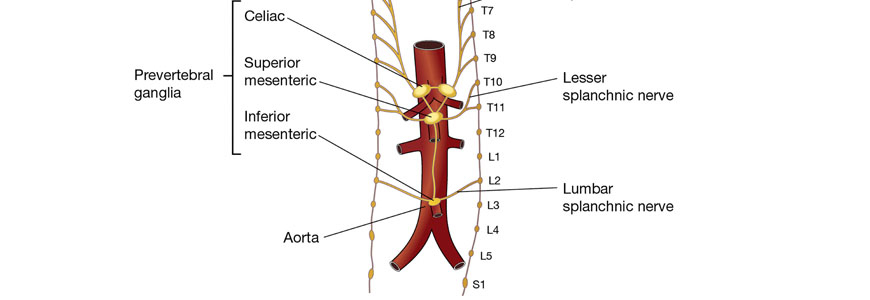A study of the efficacy of splanchnic nerve block (SNB) in reducing accumulated fluid in the heart and lungs—a common heart failure (HF) symptom—suggests that the volume redistribution triggered by SNB may offer a relatively simple solution to fluid build-up.
A team of Duke cardiologists performed the study to test the concept as a potential treatment of acute HF. The cardiologists modulated the splanchnic sympathetic tone through a minimally invasive regional nerve block, which markedly reduced intracardiac filling pressures and increased cardiac output.
Led by Duke cardiology fellow Marat Fudim, MD, the researchers conducted the tests as a small, proof-of-concept study of five patients with acute heart failure at Duke University Hospital. The results were presented at the European Society of Cardiology’s 2018 Heart Failure meeting and published in May in Circulation.
“Obviously, this is a small study, but the results from these patients suggest that this approach has potential for one of the most common heart conditions in the world,” Fudim says, noting that more than 5 million people in the United States experience heart failure. The condition is one of the leading causes of hospitalization.
Fudim and colleagues designed the study based on an observation about the fluid buildup that accompanies heart failure: If the fluid buildup were the result of water retention, the researchers reasoned, patients should present with weight gain in the days before an acute HF episode. But about 50% of patients do not gain weight during that timeframe.
Instead, Fudim says, the fluid is an outflow from the natural stockpile the body stores in the belly region for emergencies such as stress or trauma. The release of pooled blood, driven by an activation of nerves by hormones, is used by organs during emergency events.
In heart failure, however, the body appears to be in a permanent state of heightened alert, flooding the heart and lungs with fluid beyond the organs’ capacity. The splanchnic nerves control the fluid flow, Fudim says, and the splanchnic vascular compartment may be a key to resolve the fluid imbalance that is a hallmark of acute and chronic heart failure. The research also suggests that the splanchnic vascular compartment may also play a role in the volume dysregulation in acute and chronic HF, even in the absence of increases of total body fluid volume.
In addition to Fudim, the research team included Manesh Patel, MD, chief of Duke’s Division of Cardiology and a member of the Duke Clinical Research Institute, W. Schuyler Jones, MD, Richard L. Boortz-Marx, MD, MS, Arun Ganesh, MD, Cynthia L. Green PhD, Adrian F. Hernandez, MD, MHS.




